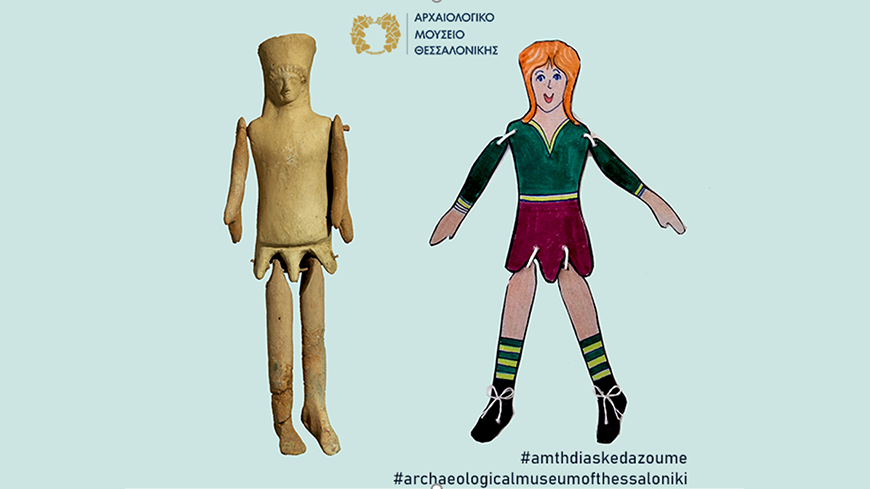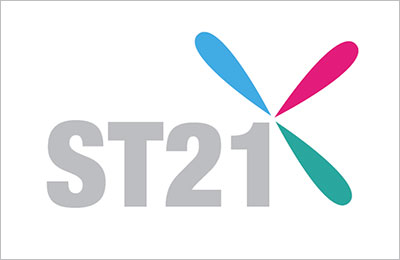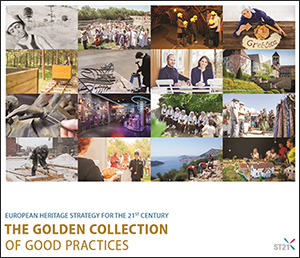Location of the initiative:

Initiator
Hellenic Ministry of Culture and Sports / Archaeological Museum of Thessaloniki
Relation to Strategy 21 Recommendations:
K11 - explore heritage as a source of knowledge, inspiration and creativity
Time span of the initiative:
Start date: April 2020 / End date: end of May 2020
Motivation / Methodology
The initiative "Let’s stay at home and make a paper “Plangon” toy doll” was organised on the occasion of the “International Museum Day” on the 18th of May 2020. It is designed and addressed to the younger audience of the Museum and is inspired by the toy doll “Plangon”, that had movable arms and legs, and was originally made out of clay in ancient Greece. The Archaeological Museum of Thessaloniki showcases “Plangon” toy dolls in its collections that are amongst the most favourable exhibits to young visitors.
In March 2020, all museums in Greece had to close because of the COVID-19 pandemic including the Archaeological Museum of Thessaloniki as well. The lockdown forced museums to readapt their strategies and enhance their digital activities and communication with the public. The “Plangon” initiative was designed as an educational digital workshop that would remotely interact with the public (#amthdiaskedazoume). The attendees could accede to the museum’s ancient toy dolls without their physical presence and only in a digital way.
The main goal of this digital initiative is to inspire young children to interact with an ancient Plangon toy doll, while staying at home during the COVID-19 pandemic. More specifically, the participants were invited to construct a paper toy doll inspired by the original ancient Plangon and dress it in an imaginative way.
Detailed instructions on how to construct - step by step - the paper toy doll, were given to the participants. The material to be used for the creation and decoration should be easily found at home: recycled paper, colouring materials, textiles, and many other household objects.
The interaction with an archaeological object such as the “Plangon” is a link with culture that involves personal development, inspiration and creativity.
The initiative engages the whole family; children could work together with their parents in playful, creative and amusing learning ways.
After the completion of the project, children’s creations (the “Plangon” artworks) were on display in a virtual exhibition held at the museum’s web page:
- https://www.amth.gr/exhibitions/temporary/menoyme-spiti-kai-diaskedazoyme-paizontas,
- https://app.panoroo.com/tours/ABNeq3v2,
- https://youtu.be/UuSX6pVPs10
On June 15, 2020 the museum reopened and the children’s Plangons welcomed the visitors via a special online video:
https://www.youtube.com/watch?v=gw4dYhMMAn0&list=PLEpOBHfJsEAYTRUNAxqCas7YuCew1Fvb6
Obstacles / Barriers
The main obstacle was how to organize a complete educational project at home without the use of the technical equipment and support of the museum. Any difficulties that arose, had to be faced in a simple, innovative, creative and flexible way.
Change / Impact
The change that resulted from this initiative was the organizing of an online digital educational programme instead of a regular one that usually requires the physical presence of participants/instructors inside the museum. Additionally, digital initiatives are becoming part of the future museum’s strategy
Lessons learned
The project appealed to younger audiences who are keener and more familiar to interactive digital content. It reached individuals all over Greece and Europe who cannot physically visit the museum regardless the COVID 19 pandemic (e.g., due to distance, disabilities, financial reasons, limited leisure time etc.). The project brought for the first time many families together who shared creative time and education during the lockdown. All the products of this initiative (i.e., the modern paper Plangones), besides being artistic creations, lead to a playful dialogue between the past and the present. The Covid 19 museum experience showed that communication and cultural engagement is both feasible and fertile even without physical presence.
Online resources
- https://www.facebook.com/archaeologicalmuseumofthessaloniki
- https://www.instagram.com/archmuseumofthessaloniki/
- https://twitter.com/intent/follow?screen_name=AM_Thessaloniki
- https://vimeo.com/amth
Contact information
Contact person: Angeliki Koukouvou; Chrysanthi Fotiadou
Organisation: Archaeological Museum of Thessaloniki
Email : akoukouvou@culture.gr; amth@culture.gr
Phone: +30 2313310201
Website: www.amth.gr
Source of financing
Public





